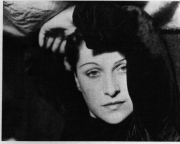
Henriette Theodora Markovitch, known as Dora Maar, was a French photographer, painter, and poet.

Maurice Boitel was a French painter.

David Rosenberg is a French art curator and author, specialized in modern and contemporary art styles.
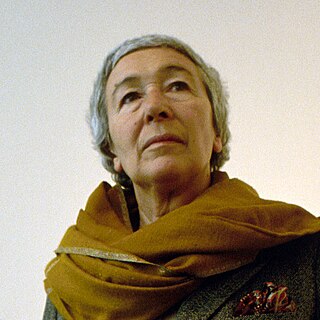
Gaetana "Gae" Aulenti was an Italian architect and designer who was active in furniture design, graphic design, stage design, lighting design, exhibition and interior design. She was known for her contributions to the design of important museums such as the Musée d'Orsay in Paris, the Contemporary Art Gallery at the Centre Pompidou in Paris, the restoration of Palazzo Grassi in Venice, and the Asian Art Museum of San Francisco. Aulenti was one of only a few women architects and designers who gained notoriety in their own right during the post-war period in Italy, where Italian designers sought to make meaningful connections to production principles, and influenced culture far beyond Italy. This avant-garde design movement blossomed into an entirely new type of architecture and design, one full of imaginary utopias leaving standardization to the past.

Jacqueline Lamba was a French painter and surrealist artist. She was married to the surrealist André Breton.
Rosa Barba is an Italian visual artist and filmmaker. Barba is known for using the medium of film and its materiality to create cinematic film installations, sculptures and publications, relate to avant-garde film and speculative fiction, and which inquire into the ambiguous nature of reality, memory, landscape and their role in their mutual constitution and representation. Suspended between dichotomies—permanent and impermanent, real and fictional, obsolescent and modern, conceptual and concrete, alien and familiar, Rosa Barba’s multiform practice encompasses films, sculptures, installations, live-performances, text, sound. Barba currently lives and works in Berlin, Germany.
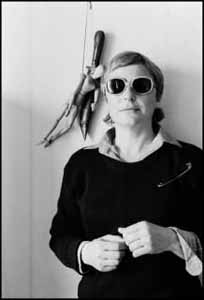
Gina Pane was a French artist of Italian origins. She studied at the École des Beaux-Arts in Paris from 1960 to 1965 and was a member of the 1970s Body Art movement in France, called "Art corporel."
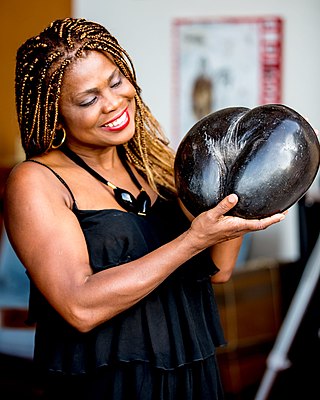
Sergine Andre (‘Djinn’), born in the Artibonite region of Haiti, is an artist who has lived and worked in Brussels since 2010. Her paintings express an identity that straddles two worlds. Her imagination draws from both the magical-spiritual tradition of her home region and the Haitian artistic avant-garde and in her paintings she brings together contrasting themes such as life and death, light and shadows.
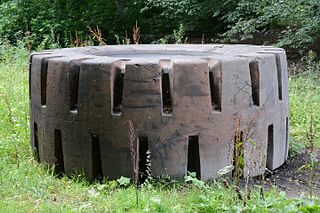
Michel François is a Belgian conceptual artist.
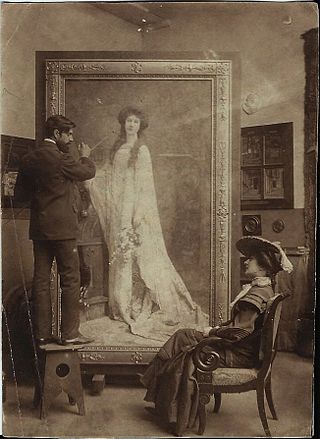
Jules Marie Auguste Leroux was a French painter and illustrator.

Patricia Erbelding is a French artist who works in a variety of media producing abstract art.

Galerie Kamel Mennour is a contemporary art gallery in Paris, France, owned and directed by Kamel Mennour.
Anicka Yi is a conceptual artist whose work lies at the intersection of fragrance, cuisine, and science. She is known for installations that engage the senses, especially the sense of smell; and, for her collaborations with biologists and chemists. Yi lives and works in New York City.

Zineb Sedira is a London-based Franco-Algerian feminist photographer and video artist, best known for work exploring the human relationship to geography.
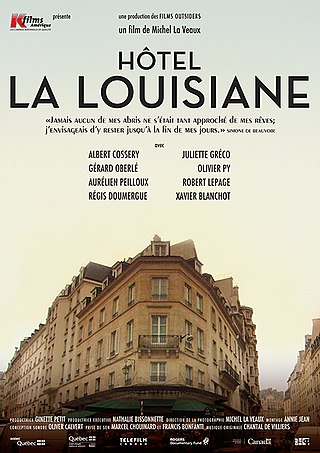
Hotel La Lousiane is a Parisian hotel located at the heart of Saint-Germain-des-Prés at the intersection of rue de Buci and rue de Seine in the sixth arrondissement. It has a main entrance on 60, rue de Seine and a side entrance on 27 rue de Buci. It sits at the crossroad between four central lines: the Passarella des Arts (N), the Luxembourg Garden, (S), rue St Guillaume, (W) and place St Michel, (S). It is most associated with jazz musicians of the 1950s and 1960s. Oscar Peterson, Miles Davis, Bud Powell, Max Roach, Dizzy Gillespie, Art Blakey, Billie Holiday, Lester Young and Charlie Parker all stayed at the hotel. In the early 1960s, Powell and his wife Buttercup resided at the hotel for a long period.
Yuko Hasegawa is the director of the 21st Century Museum of Contemporary Art, Kanazawa and professor of curatorial and art theory at Tokyo University of the Arts.

Céline Condorelli is an artist who works between London and Milan and is best known for her publications The Company She Keeps and Support Structures and her artworks which work across the spheres of art and architecture. Support Structures was a co-publication with Gavin Wade. She was shortlisted for the Max Mara Art Prize for Women in 2017.
Elsa Werth is a French artist who lives and works in Paris.
Vicente Todolí is a Spanish contemporary art curator who has worked as the director of several museums and art centres internationally, including the Tate Modern in London.

Miri Segal is a new media artist currently living in Tel Aviv. Segal was born 1965, in Haifa, Israel. Since the late 90s she has created video and media installations, light objects and theatrical pieces. Prior to her career as an artist she studied Mathematics. In 1997, She received a PhD in mathematics from the Hebrew University in Jerusalem under the instruction of Prof. Menachem Magidor. In 1998, she studied Art at the San Francisco Art Institute. Segal owes her taste for the mechanisms of perception and the construction of sense-stimulating illusions to her mathematical background, according to art historian Hanna Almeka.















